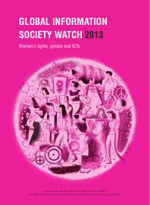Other news
Published on Thu, 2014-05-22 22:54
The undersigned organizations condemn the security forces storming of the Egyptian Center for Economic and Social Rights, Alexandria Branch, and note that such attack is an expected escalation, amidst the growing incitement in the media, and defamation campaigns, which have been targeting human rights organizations and human rights defenders in Egypt.
Egyptian security forces, alongside security personnel dressed in civilian attire, raided the Alexandria Branch of The Egyptian Center for Economic and Social Rights, arresting 15, including two minors, and two ECESR staff, and confiscating several computers and documents. The arrested were taken to the Alexandria Security Department where they were held, until released hours later.
|
Published on Tue, 2014-04-15 14:17
Following the non-renewal of the contract of Anita Nayar as head of the Non-Governmental Liaison Service of the United Nations, the Coordinating Committee of Social Watch expressed its concern. See the letter below.
|
Published on Sun, 2014-04-13 10:13
The European Parliament has just released a major report with a clear message for all those engaged in the growing debate about the role of external private finance in development: quality matters far more than quantity. As the post-2015 debate on financing development continues, and the UN gears up for a major Financing for Development conference in 2015 or 2016, this timely paper – co-authored by Jesse Griffiths and three other experts - gives clear recommendations on how European governments can ensure that fighting poverty stays at the heart of this agenda.
|
Published on Thu, 2014-04-10 17:32
The World Bank is a structural driver of the land grabs that is dispossessing and impoverishing rural communities across the globe. It is a central player that is using its financial and political might to force developing countries to follow a pre-prescribed model of development, based on the neoliberal principles of privatization, deregulation, low corporate taxation and ‘free market’ fundamentalism. Evidence clearly shows that this model overwhelmingly favors large agribusiness interests at the expense of smallholders, and is designed to extract the maximum value from developing countries’ natural and human resources.
Join us to tell the World Bank that it has no business in ranking countries and opening them up to foreign corporations thirsty for the extraction of their resources and the exploitation of their work force.
|
Published on Thu, 2014-04-10 14:51
 |
A statement issued today by the ITUC and its Global Unions partner organisations in advance of this weekend’s Spring Meetings of the IMF and World Bank (Washington, 11-13 April) calls on the international financial institutions (IFIs) to take concrete actions to follow through on their announced intentions to pay greater attention to employment and inequality issues. The ITUC notes the IMF’s World Economic Outlook forecast made on Tuesday that economic growth will strengthen in 2014, in large part because of “a strong reduction in the pace of fiscal tightening”. ITUC General Secretary Sharan Burrow stated: “We are pleased to see the IMF recognise that drastic fiscal consolidation policies have been a drag on growth, something that unions have been saying since the inappropriate shift to austerity made in 2010.” However she also observed that threats to growth may increase in emerging-market economies because of capital outflows. “The IFIs should help boost aggregate demand in countries with output and employment gaps and ensure that their financial support maximises decent work creation,” said Burrow.
|
Published on Thu, 2014-03-27 18:52
After two weeks of intense negotiations, the 58th session of the Commission on the Status of Women ended early Saturday morning with a strong call to prioritize gender equality and the human rights of women in order to achieve sustainable development.
The Commission was convened at the UN headquarters in New York to address the challenges and achievements of the Millennium Development Goals (MDGs) in improving the lives of women and girls in developing countries. While the MDGs resulted in a reduction of poverty in some respects, the goals furthest from being achieved are those focused on women and girls—particularly on achieving gender equality and improving maternal health. With the MDGs set to expire in 2015, the Commission's outcome document will help shape priorities for the next global development framework.
|
Published on Thu, 2014-03-06 13:15
A Feminist Declaration for Post 2015.As the United Nations decides on the future course of international development Post 2015, women of all ages, identities, ethnicities, cultures and across sectors and regions, are mobilizing for gender, social, cultural, economic and ecological justice, sustainable development and inclusive peace. We seek fundamental structural and transformational changes to the current neoliberal, extractivist and exclusive development model that perpetuates inequalities of wealth, power and resources between countries, within countries and between men and women. We challenge the current security paradigm that increases investments in the military-industrial complex, which contributes to violent conflict between and within countries.
|
Published on Wed, 2013-12-18 14:19

Demonstration against corruption
in Manila.
|
Revolutionary years seem to happen every half-century. In 1848 fifty revolutions in Europe and Latin America put a definitive end to the monarchy in France, absolutism in Denmark and the feudal serfdom in Austria and Hungary. In 1917 the two Russian revolutions started to put in practice the ideas summarized by Karl Marx and Friedrich Engels in a famous Manifesto, published precisely in 1848. In 1968 the specter of revolution toured the world again with rebellions against the established order in Paris, Prague, Mexico and many other cities and campuses.
Was 2013 one of these years that history will remember as turning points? Statistics say that this is indeed the case. In a study titled "World Protests 2006-2013" Isabel Ortiz from Columbia University and Sara Burke, from the Friedrich Ebert Stiftung in New York, record and analyze strikes, demonstrations, rallies, riots, road blockages, occupations and other protest actions in almost ninety countries worldwide*.
|
Published on Wed, 2013-12-11 23:12
In a report to the UN General Assembly, a UN rights expert has emphasised that poverty is closely associated with racism and contributes to the persistence of racist attitudes and practices which in turn generate more poverty.
Racial or ethnic minorities are disproportionately affected by poverty; and the lack of education, adequate housing and health care transmits poverty from generation to generation, a United Nations rights expert has said.
According to Ruteere, poverty does not result only from an unequal sharing of resources. 'Discrimination against groups and persons based on their ethnicity, race, religion or other characteristics or factors has been known to encourage exclusion and impoverish certain groups of the population who suffer from unequal access to basic needs and services.'
|
Published on Wed, 2013-12-11 22:06
The Global Information Society Watch 2013 shows that gains in women’s rights made online are not always certain or stable. While access to the internet for women has increased their participation in the social, economic and governance spheres, there is there is another side to these opportunities: online harassment, cyberstalking, and violence against women online all of which are on the increase globally. This GISWatch is a call to action, to the increased participation of women in all forms of technological governance and development, and to a reaffirmation and strengthening of their rights online.
|
SUSCRIBE TO OUR NEWSLETTER
Submit

|










